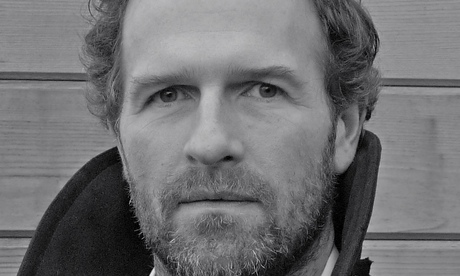
If you read a lot of YA books you'll be aware of the dark themes permeating current plotlines. The use of death across a range of imaginative and heartfelt storylines is a key component of this darker, growing genre of fiction.
Personally, I think YA readers are all the richer for it, because the characters in these stories are forced to consider how death shapes life; not only in the philosophical sense of grappling with the nature of existence but also practically, in terms of how to live, how to be.
For younger adults exposure to these sorts of questions vicariously, through reading, can only be invaluable, echoing similar ones appearing in their own lives as they grow up.
Death has always lurked in some of the most moving and beautiful children's stories, but for the younger reader, it's usually approached in a palatable manner: good overcoming evil in the traditions of fairytales or in some oblique manner that isn't gratuitous.
In a lot of YA fiction, the tone is different: with death woven as realistically into the lives of characters as it would be into our own, making the stories grittier and darker. This allows young adults to engage with the reality of dying through the safe act of reading.
For readers who have not yet been affected by the death of someone they know, this has to be a useful way of engaging with issues that will inevitably become relevant later in their lives. On the other hand, for those who have already been affected by death then being introduced to characters undergoing similar experiences must generate a sense of connection, of comfort that the reader is not alone.
The power of YA fiction to generate an emotional resonance around death should not be underestimated in UK society, where young adults spend a lot of time immersed in the artificial realities of cyberspace and gaming. I often wonder how distanced the concept must seem to teenagers playing video games for hours, where immortality is guaranteed simply by pressing the reset button.
The use of death in YA fiction is also important in creating dialogue between young adults and adults. Now, apparently, not-so-young adults are reading more and more YA: in my opinion that's no bad thing. Inevitably, adults have to grapple with difficult questions about death too (just look at the current debate about the ethics of assisted dying), so why shouldn't they read YA fiction that grapples with this topic? If this helps adults engage with young adults about the issues surrounding death through mutually enjoyed stories, then I think this has to be positive when teenagers are so often distanced from previous generations through technology, vocabulary and life experience.
One way of tackling the difficult questions raised by death is to feel connected to one another in addressing them, to feel human together. The popularity of Twitter hashtags like #YAsaves and #fictionaldeathsiwillnevergetover point to the power of books to create connective emotional tissue between readers. YA bestsellers that address death, like The Fault In Our Stars by John Green, generate their own sense of community in reviews and on blogs and social media. In an increasingly atomised society, it must be a good thing to be reminded of the strength a group can have in facing issues together.
With the strengthening of a secular strand in UK society, is it too far to suggest that YA stories can fill part of the role religious faith has traditionally played in debating and discussing death? If that sounds too far, then consider this: YA fiction can provide emotional insights about death for readers irrespective of their religious beliefs, elevating it above competing dogmas to appeal to a wider spectrum of society – much more than any one religion can.
Some people welcome the dark tone of YA books whilst others don't. My own view is that it's the story that's important in the debate. I don't believe authors set out to be gratuitous, but are instead focused on finding the right way to tell the story inside them. So where do these stories come from? Well, chiefly from a writer's own experiences – the fictional author Peter Van Houten in Green's The Fault in Our Stars reads like a clever nod to this fact. Maybe the true significance of death in YA is that authors are reflecting back what they see everyday; namely, that death is ominously prevalent these days, whether in fiction or a national news broadcast or the obituary columns.
What better way to explore an issue that affects us all than for authors to write compelling stories and for readers to read them?
Rupert Wallis's latest book The Dark Inside is available from the Guardian bookshop.

